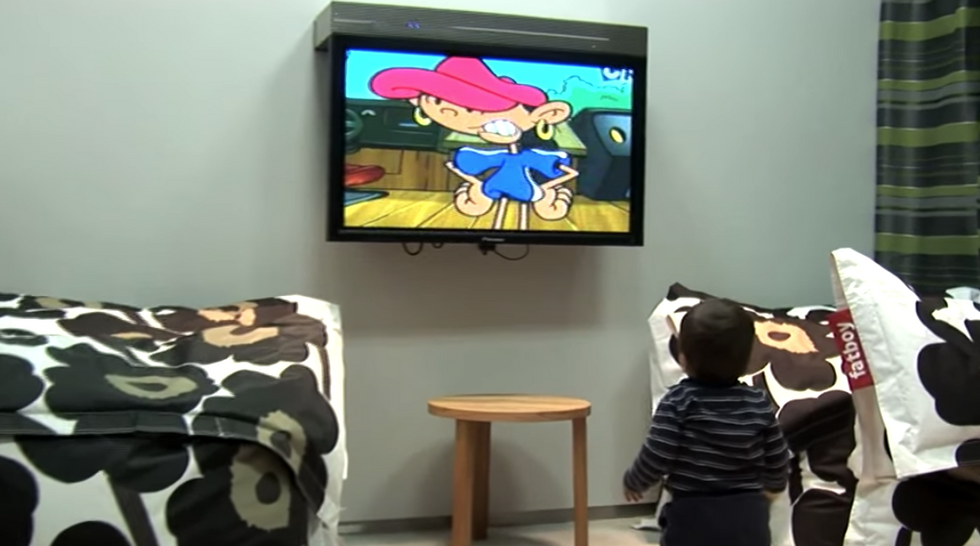Children's cartoons are rather interesting. A child and an adult could be sitting in the same room, watching the same movie and have two different reactions to it. This allows me to think about how different an adult's way of thinking and overall perception is in comparison to when they were younger. That makes sense because an adult has typically experienced a lot more life than a child has, and those experiences have helped shape the person's mind and just who they are.
As an adult, I do like going back and watching some shows I watched as a kid. I realized how much I missed on the storyline in some shows, and sometimes I realize how much I got distracted by other characteristics in the show such as bright colors or what the characters were wearing. I've also noticed the simplicity of the storyline, as opposed to more "of age" content.
A show I used to love as a young child is "Dragon Tales." I remember watching it every time it was on TV after school and on Saturday mornings. Cassie was my favorite character, not just because she was pink. Although that was probably a big reason in my young, innocent mind. She also had a quiet and reserved personality, much like mine when I was young. As a child, I would watch the show and take it in for what it was. Emmy and Max go to Dragon Land, the gang gets together, and they conquer the problem that they face on that given day. Pretty simple storyline that is easy to grasp in all honest.
I watch that as an adult, however, and see the lessons that were taught. Not all episodes had lessons to learn, but several did. This applies to other TV shows and movies as well. This realization compels me to question what the motives were of the writers. Why did I not pick up on underlying lessons as a child? Was I just that oblivious, or were the intentions actually for an adult to teach the child while watching it?
In addition, many children's programs have a lot of adult jokes and humor hidden in them. I've seen several videos on Youtube about dirty jokes in a children's TV show that were apparently attempted to be hidden. To me, these weren't as obvious. In fact, I might not have picked up on a lot of them in the various shows had I not seen them pointed out. Then again, I automatically don't think of perverted things so that might be partially why. Nonetheless, this could be the same idea used as a child not picking up on lessons learned. The writers could assume that children are going to have more of a pure and innocent mind than adults do, so they put this hidden adult humor, thinking they aren't going to corrupt their innocence just yet. Or maybe the writers might be slightly mocking their innocence and finding humor in it. It's hard to tell.
An example of this is "SpongeBob SquarePants." It is definitely a different show watching it as an adult. We actually discussed it in my AP English class in high school. It is so interesting to study this, and think about all the development and psychology that can go along with it.





 Lumiere figure at the Disney Store at the Ala Moana Shoppi… | Flickr
Lumiere figure at the Disney Store at the Ala Moana Shoppi… | Flickr








 StableDiffusion
StableDiffusion StableDiffusion
StableDiffusion 10. Extra BlanketsJuwenin Home 100% Cotton Knitted Throw Blanket
10. Extra BlanketsJuwenin Home 100% Cotton Knitted Throw Blanket StableDiffusion
StableDiffusion StableDiffusion
StableDiffusion File:Kishlaru familie.jpg - Wikimedia Commons
File:Kishlaru familie.jpg - Wikimedia Commons Photo by Hanna Balan on Unsplash
Photo by Hanna Balan on Unsplash StableDiffusion
StableDiffusion black blue and yellow round illustrationPhoto by
black blue and yellow round illustrationPhoto by 





 woman holding glass jar
Photo by
woman holding glass jar
Photo by 








